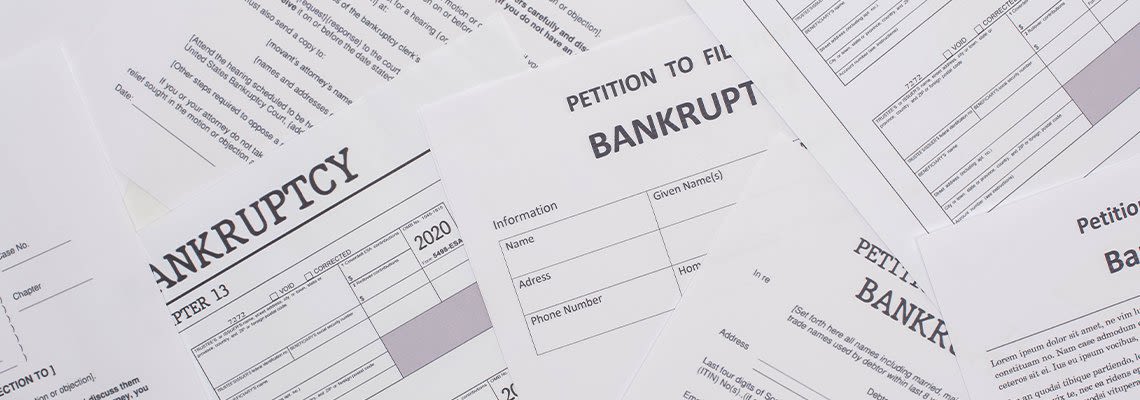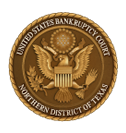Chapter 13 Bankruptcy in Texas is an important tool that allows individuals to restructure their debt and get back on a sound financial track. By reorganizing their debt, it can be easier for many to make payments and eventually become free of financial obligations. The process is complex and has several specific requirements determined by the Texas Bankruptcy Code. It is important to understand these rules before attempting to file for Chapter 13 bankruptcy in Texas.

Table Of Content:
- Chapter 13 Bankruptcy Information | Southern District of Texas
- Chapter 13 Bankruptcy - Fact Sheet | Texas Law Help
- 13Network Home
- What is Chapter 13 Bankruptcy? | Texas Law Help
- Chapter 13 Bankruptcy Texas: 7 Things You Need to Know
- The Pros and Cons of Declaring Chapter 13 Bankruptcy in Texas ...
- Chapter 13 - Bankruptcy Basics | United States Courts
- How Does Chapter 13 Bankruptcy Work in Texas? | Oliva Law ...
- Bankruptcy Forms | United States Courts
- Chapter 13 Trustees | Northern District of Texas | United States ...
1. Chapter 13 Bankruptcy Information | Southern District of Texas
https://www.txs.uscourts.gov/page/chapter-13-bankruptcy-information A voluntary Chapter 13 petition may be filed by any individual, even if self-employed or operating an unincorporated business, by submitting the original of the ...
A voluntary Chapter 13 petition may be filed by any individual, even if self-employed or operating an unincorporated business, by submitting the original of the ...
2. Chapter 13 Bankruptcy - Fact Sheet | Texas Law Help
https://texaslawhelp.org/article/chapter-13-bankruptcy-fact-sheet
May 26, 2017 ... Unlike a Chapter 7, where most debts are canceled, a Chapter 13 bankruptcy requires the debtor to repay some or all of the debt according to a ...
3. 13Network Home
https://www.13network.com/BSS is the nation's leading provider of Bankruptcy Software and Services to Chapter 13 Trustees. Click here to learn about other services provided by BSS.
4. What is Chapter 13 Bankruptcy? | Texas Law Help
https://texaslawhelp.org/article/what-chapter-13-bankruptcy
Feb 9, 2018 ... In Chapter 13, the debtor must file a plan to repay creditors and make monthly payments to the Chapter 13 trustee as the plan requires.
5. Chapter 13 Bankruptcy Texas: 7 Things You Need to Know
https://tryascend.com/bankruptcy/texas/chapter-13 Jul 13, 2022 ... Through the Chapter 13 bankruptcy process, debtors (the individuals who file the bankruptcy case) propose a plan that repays some or all of ...
Jul 13, 2022 ... Through the Chapter 13 bankruptcy process, debtors (the individuals who file the bankruptcy case) propose a plan that repays some or all of ...
6. The Pros and Cons of Declaring Chapter 13 Bankruptcy in Texas ...
https://olivalawfirm.com/blog/the-pros-and-cons-of-declaring-chapter-13-bankruptcy-in-texas-2/ Jan 21, 2019 ... If you don't pass the means tests for a Chapter 7 bankruptcy, then your other bankruptcy option is a Chapter 13 debt reorganization. With ...
Jan 21, 2019 ... If you don't pass the means tests for a Chapter 7 bankruptcy, then your other bankruptcy option is a Chapter 13 debt reorganization. With ...
7. Chapter 13 - Bankruptcy Basics | United States Courts
https://www.uscourts.gov/services-forms/bankruptcy/bankruptcy-basics/chapter-13-bankruptcy-basics This chapter of the Bankruptcy Code provides for adjustment of debts of an individual with regular income. Chapter 13 allows a debtor to keep property and ...
This chapter of the Bankruptcy Code provides for adjustment of debts of an individual with regular income. Chapter 13 allows a debtor to keep property and ...
8. How Does Chapter 13 Bankruptcy Work in Texas? | Oliva Law ...
https://olivalawfirm.com/blog/how-does-chapter-13-bankruptcy-work-texas/ Dec 7, 2020 ... Chapter 13 bankruptcy is a solution that offers aid to individuals who have a regular income but are nevertheless suffering from heavy debt.
Dec 7, 2020 ... Chapter 13 bankruptcy is a solution that offers aid to individuals who have a regular income but are nevertheless suffering from heavy debt.
9. Bankruptcy Forms | United States Courts
https://www.uscourts.gov/forms/bankruptcy-forms
B 108, Statement of Intention for Individuals Filing Under Chapter 7, Individual Debtors ; B 113, Chapter 13 Plan, Individual Debtors ; B 119, Bankruptcy Petition ...
10. Chapter 13 Trustees | Northern District of Texas | United States ...
https://www.txnb.uscourts.gov/chapter-13-trustees Chapter 13 Trustees ; Dallas - Tom Powers ; Fort Worth - Tim Truman ; Fort Worth - Pam Bassel ; Abilene, Amarillo, Lubbock, San Angelo, Wichita Falls - Katherine ...
Chapter 13 Trustees ; Dallas - Tom Powers ; Fort Worth - Tim Truman ; Fort Worth - Pam Bassel ; Abilene, Amarillo, Lubbock, San Angelo, Wichita Falls - Katherine ...
What is Chapter 13 bankruptcy?
Chapter 13 bankruptcy is a form of debt repayment available to individuals who are unable to pay back all of their debt. This type of bankruptcy reorganizes the debts into manageable payments with the help of a trustee assigned by the court. The person filing must have enough income to cover all agreed upon payments, and after successful completion, the filer can receive a discharge from their remaining debts.
What debts can be discharged in a Chapter 13 Bankruptcy?
In a chapter 13 bankruptcy, most unsecured debts such as credit card and medical bills can be discharged under the protection of the court-ordered plan once creditors receive what they are owed under its terms. Secured debts such as mortgages or car loans may not be fully discharged but instead may allow for payment over time according to an agreed upon payment plan that does not exceed five years or the current life expectancy of the property (whichever is greater).
Who qualifies for Chapter 13 Bankruptcy in Texas?
To qualify for Chapter 13 Bankruptcy in Texas, you must have enough regular income to support your proposed repayment plan. Additionally, you must not owe more than $394,725 in unsecured debt or $1,184,200 in secured debts (not including home mortgages) –or greater amounts if allowed by local law– as adjusted periodically by statute.
How long will my case take?
Generally speaking, most chapter 13 bankruptcies take three to four years from filing until discharge; however this timeline could vary depending on individual circumstances and complexity of your case.
Conclusion:
Filing for Chapter 13 Bankruptcy in Texas requires careful consideration and preparation due to its complex nature and far-reaching implications regarding finances and future creditworthiness. While understanding these rules may seem daunting at first, having knowledge of them prior to filing will provide invaluable guidance throughout the process allowing individuals affected by difficult financial predicaments an opportunity to regain control over their finances through reorganization efforts supervised under court authority.
